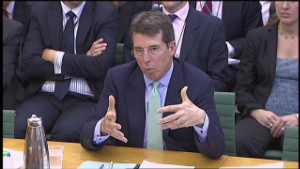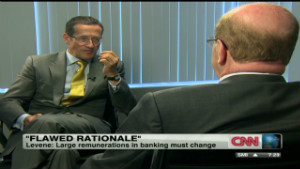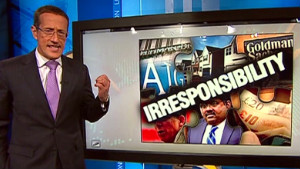
- Barclays former chief executive Bob Diamond will forgo deferred bonuses of around £20 million
- Chairman Marcus Agius is giving evidence on a rate-rigging scandal
- Agius says Barclays deeply regretted the circumstances that led to Diamond resigning
- Diamond will still receive a year's salary, the bank says
London (CNN) -- Former Barclays bank chief executive Bob Diamond will voluntarily give up bonuses worth $31 million after he resigned in the wake of a rate-rigging scandal, the bank said Tuesday.
Diamond will still receive 12 months salary after his resignation last week, the bank said Tuesday. That's £1.35 million (about $2 million), according to the bank's annual report.
It is twice as much as he is entitled to under his contract, which has a six-month notice period, bank chairman Marcus Agius said.
Agius, giving evidence to the Treasury Select Committee inquiry into the scandal, said Diamond's decision was one which "the board welcomes and I am glad he has done it."
 Bob Diamond defends Barclays
Bob Diamond defends Barclays  Levene: Culture of money must change
Levene: Culture of money must change  'Age of irresponsibility' in banking
'Age of irresponsibility' in banking In a statement Agius said the board deeply regretted the circumstances that led to Diamond resigning from Barclays.
Agius said: "Despite having no personal culpability, he recognizes more than anyone the negative attention that they have generated and has taken characteristically strong action to address that."
Barclays' reputation has been hammered by a scandal over the rates at which banks lend each other money.
The rate is hammered out based on input from big banks in London each morning and is known as the London interbank offered rate, or Libor.
It affects how much interest ordinary people pay on everything from credit card debt to home mortgages and student loans.
Barclays was fined $450 million by British and American regulators last month after admitted some of its trading desks purposely underreported its interest rates.
Diamond said he hoped the decision on his pay and bonuses "will help close this chapter and allow Barclays to move forward and prosper."
Agius's evidence follows that of Bank of England's deputy governor Paul Tucker Monday, in which he denied being pressured by politicians to ensure Libor rates were lowered. He also denied pressuring Barclays to lower its rates.
Diamond last week said he was "sorry, I'm disappointed and I'm angry" about the rate-fixing. "This was wrong and I'm not happy about it, but we put all the resources we could to make sure it was dealt with."
He said also "this doesn't represent the Barclays that I know and I love." Diamond blamed the wrongdoing on 14 traders out of "a couple thousand."
A report from the UK's Financial Services Authority concluded the rate-fixing scandal was of the "utmost seriousness."
Between 2005 and 2009, when Diamond was in charge of the investment branch of Barclays bank, traders were influencing the pricing of rates which impacts up to $800 trillion of securities.
E-mails revealed as part of the rate fixing investigation showed traders were seeking beneficial rates for their trading positions.
During the credit crisis of 2007 and 2008, Barclays' high Libor postings came under scrutiny and the bank, concerned about "unfounded negative perceptions," lowered its Libor submissions, according to Barclays notes to the Treasury Committee.
Libor, or the London Interbank Offered Rate, is the benchmark rate which is set every morning by banks posting the rate at which they are willing to borrow with the British Bankers' Association.
The BBA publishes Libor as a result of this, and the rate is then used to fix the borrowings of credit cards, mortgages, car leases and more.
A host of other banks, including Deutsche Bank, Royal Bank of Scotland, Credit Suisse, Citigroup, JPMorgan Chase and UBS, are being investigated by regulators. Law suits have also being filed against the banks in the U.S., and being prepared in the UK.
CNN's Jim Boulden, Irene Chapple, Richard Allen Greene and Nina dos Santos contributed to this report


